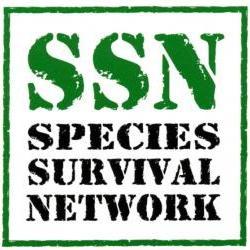USA
Established in 1992, the Species Survival Network (SSN) is a global coalition of 80 NGOs dedicated to enforcing CITES’ regulations and to adding new listings in its appendices. The creation of this umbrella group was largely the initiative of Earth Trust’s creator Donald White, former Executive Director of Greenpeace Hawaii (1978-1987), and a founding senior board member of Greenpeace USA (1980-1985). There, according to White’s biography, he directed all of Greenpeace’s dolphin strategy for two years, besides being one of the ‘driving forces behind its global anti-whaling campaigns’.
According to Earth Trust’s website, the SSN Fish Working Group, led by Earth Trust’s Linda Paul, lobbied successfully for ‘the listing of the great white shark, whale shark, basking shark, Napoleon wrasse and seahorses in CITES Appendices’. All of these listings were controversial and remain contested, either at the level of efficacy and/or as to whether the scientific evidence ever justified them in the first place.
The SSN believes that trade in wildlife should only occur on very restrictive terms. That is, in its words, when ‘evidence positively demonstrates that survival of the species, subspecies or populations and their role in the ecosystems in which they occur will not be detrimentally affected by trade and when trade in live animals minimizes the risk of injury, damage to health or cruel treatment’. Contrariwise: CITES is premised on trade in wildlife being allowable until proven, based on strict scientific criteria laid out in the Convention, that it needs controlling.
SSN is represented on CITES’ Standing Committee, Animals Committee, Plants Committee, and at CoPs.
Leaders/Governance
Will Travers, Executive President and Co-Founder of Born Free, chair’s SSN’s Board.
Finances
According to form 990, in 2018 SSN’s revenue was USD243, 185.


